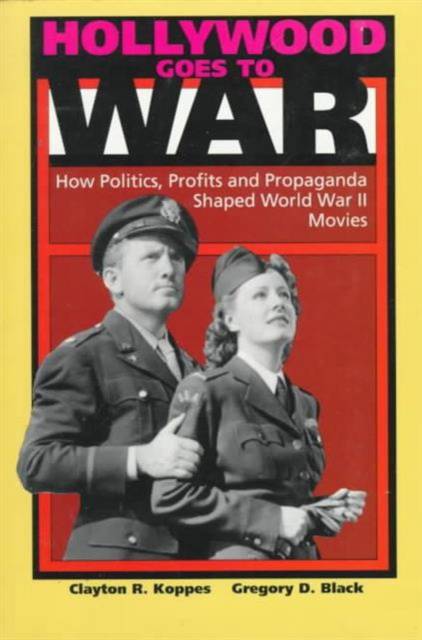
- Afhalen na 1 uur in een winkel met voorraad
- Gratis thuislevering in België vanaf € 30
- Ruim aanbod met 7 miljoen producten
- Afhalen na 1 uur in een winkel met voorraad
- Gratis thuislevering in België vanaf € 30
- Ruim aanbod met 7 miljoen producten
Zoeken
Hollywood Goes to War
How Politics, Profits and Propaganda Shaped World War II Movies
Clayton R Koppes, Gregory D Black
Paperback | Engels
€ 57,95
+ 115 punten
Omschrijving
Conflicting interests and conflicting attitudes toward the war characterized the uneasy relationship between Washington and Hollywood during World War II. There was deep disagreement within the film-making community as to the stance towards the war that should be taken by one of America's most lucrative industries. Hollywood Goes to War reveals the powerful role played by President Franklin D. Roosevelt's Office of War Information-staffed by some of America's most famous intellectuals including Elmer Davis, Robert Sherwood, and Archibald MacLeish-in shaping the films that were released during the war years. Ironically, it was the film industry's own self-censorship system, the Hays Office and the Production Code Administration, that paved the way for government censors to cut and shape movies to portray an idealized image of a harmonious American society united in the fight against a common enemy. Clayton R. Koppes and Gregory D. Black reconstruct the power struggles between the legendary producers, writers, directors, stars and politicians all seeking to project their own visions onto the silver screen and thus to affect public perceptions and opinion.
Specificaties
Betrokkenen
- Auteur(s):
- Uitgeverij:
Inhoud
- Aantal bladzijden:
- 384
- Taal:
- Engels
Eigenschappen
- Productcode (EAN):
- 9780520071612
- Verschijningsdatum:
- 16/08/1990
- Uitvoering:
- Paperback
- Formaat:
- Trade paperback (VS)
- Afmetingen:
- 153 mm x 228 mm
- Gewicht:
- 539 g

Alleen bij Standaard Boekhandel
+ 115 punten op je klantenkaart van Standaard Boekhandel
Beoordelingen
We publiceren alleen reviews die voldoen aan de voorwaarden voor reviews. Bekijk onze voorwaarden voor reviews.











